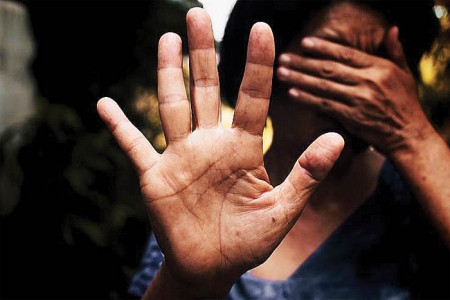Cost of living forces the abused to live with abusers
Nnasaretha Kgamanyane | Friday May 28, 2021 16:44


Gender-based violence (GBV) activist and survivor, Malebogo Molefhe says the challenging times brought about by COVID-19 have pushed many people out of work, in particular women and young girls.
As the time get harder, women and girls, particularly in rural areas, do not have opportunities to fend for themselves and also lack information compared to those living in urban areas.
These factors are leading to high levels of desperation and exposure to GBV and other forms of abuse, she says.
“Many of those women in rural areas rely on men to feed their families,” explains Molefhe.
“Some find themselves in abusive relationships and are forced to stay in them because they depend on their perpetrators to take care of them and their children.
“In most cases those women lack knowledge about GBV and do not have a say in their relationships.
“With the current economic situation, we see the increase in risk of violence for those women and young girls who see themselves getting into relationships with old men or abusive partners because they need financial support,” she says further. Molefhe stresses that this situation also increases the risk of one being infected with HIV because such women and girls have no say in their sexual lives. They cannot demand the use of protection during intercourse with their domineering partners. She says in those types of relationships, whatever the male breadwinner says, goes.
The activist says young women in urban areas are more aware of GBV due to social media, but many still fall into abusive relationships and or even find themselves falling into rapists’ trap. She explains that even though these women thought they were aware of GBV, they did not fully have knowledge of it to avoid the sticky situations.
“It is sad that as a country, we (NGOs, government and civil rights organisations) tend to raise awareness on GBV only once per year while a lot is happening every single day. It is disheartening that during these trying times of the pandemic we have seen young children and disabled vulnerable people being sexually abused by relatives.
“Lockdowns, curfews and cancellation of recreational events such as going out to nightclubs and bars, spiked the numbers of abuse in households.
“Banna ga ba itise. Ba tsaya nako e ntsi mo lwapeng therefore many end up ba dirisa bana le ba nale bogole botlhaswa.”“We have been hosting campaigns against GBV, but there has not been much of a change.
“It is high time we as a country (NGOs and the government) come up with ways that can yield results than go letsa moropa yo o lelelang ruri go sena maduo.
“We want the government to come up with more policies and amend the Constitution to protect women and the girlchild.
“We want perpetrators to be held accountable and decrease issues of perpetration,” she says.
Molefhe is a GBV survivor and advocate. She nearly lost her life when her then boyfriend shot her eight times, before turning the weapon on himself. That fateful incident altered her career as a professional basketball player as it left her in a wheelchair and more passionate about raising awareness on GBV.
For her part, Dr Hilda Mokgolodi who is the founder of Itemogelo Counselling and Consultation and also a counsel educator at University of Botswana, says it is important to understand that there are no short cuts to life.
She calls on young people to avoid “shortcuts” such as cohabitation, sharing rent as a way of avoiding costs saying many find themselves in abusive relationships simply because they tried to cut the cost of living.
“Breadwinners have power over their partners. The partner who earns more tends to abuse their counterparts due to the financial power.
“Avoid cohabiting at all costs.
“We have realised that people with low self-esteem fear their partners and end up being abused.
“Different educational backgrounds also contribute to abuse as uneducated partners can be victims of abuse due to low self-esteem,” she explains.
Speaking recently at the launch of the National Consultation On Ending Violence Against Women And Girls hosted by BOCONGO and International Network to End Violence Against Women and Girls (INEVAWG), BONELA representative, Cindy Kelemi said inequality leaves women and girls ‘undefended’ from HIV infection. She added it also diminishes their ability to cope with the consequences of illness and to care for themselves and their families.
“Regionally, a larger percentage of HIV positive individuals are women due to gender discrimination, high prevalence of sexual violence, gender norms that prevent safe sex negotiations, high level of socio-economic dependency and biological factors.
“As a result, in Botswana women have a higher HIV prevalence of 20.8% in comparison with 15.6% amongst men,” she pointed out.
Furthermore, she indicated that preliminary UNAIDS estimates 2021 show that there are clear gender differences in the HIV epidemic with more women getting infected.
The study conducted between females and males aged between 15 and above years, show that of the new global HIV infections in a single year, more women than men got the virus.
